Supporters Like You
Read about supporters like you who are leading the way in the fight to end kidney cancer.
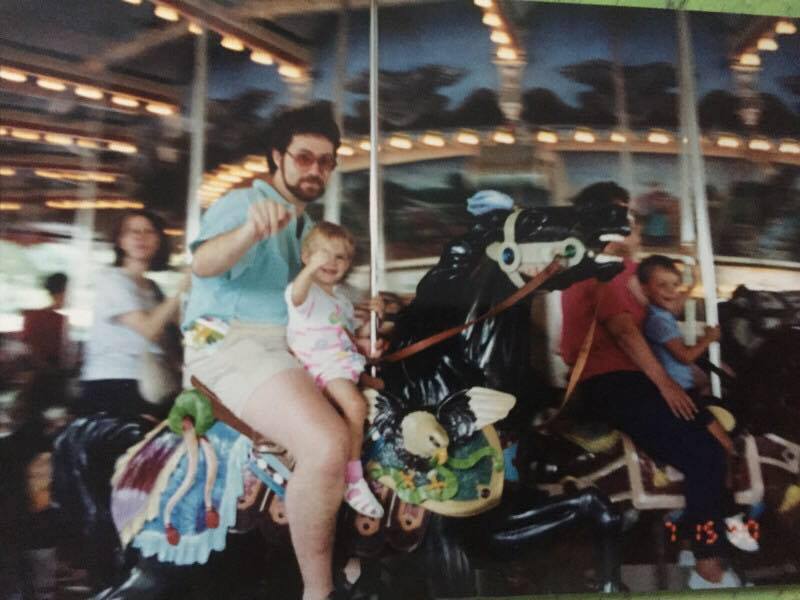
Sarah Rosner
Sarah Rosner described her father, Stanley as “a girl dad, for sure.” As a kid, they would go to the movies together and play card games. When Sarah moved to Chicago as an adult, Stanley would drive in from their family home in Milwaukee, Wisconsin to visit and go to the zoo or out to lunch for dedicated father-daughter time.
Read more of her story
“It didn’t matter if I was doing a play, a musical, or a sport, he and my mom were right there in the front row,” Sarah said. “He was a fun dad, a hard worker, and provided positive energy to everyone around him.”
Stanley’s time facing kidney cancer was swift – he died on March 3, 2016 at age 60, just two months after an unexpected stage IV kidney cancer diagnosis. Too short a time, Sarah said, for the possibility of enrolling in a clinical trial or doing anything to slow the cancer from metastasizing to the brain.
“I’m glad he didn’t have to suffer, but it was an eye-opener. We had no idea,” Sarah said. “To this day we wonder could we have done something differently? I wish there were more [ways] to detect [the cancer] earlier.”
Sarah had a strong interest in musical theater and performance, but the values her father modeled during his life inspired her to pursue a path of greater service.
Within a year after his death, she was a certified health coach using an integrated approach to address stress through nutrition, fitness, and the practice of finding excitement and joy in both work and life.
“He always brought fun into my life. And even though the cancer was a negative connotation, he was very hopeful through the treatments. I’ve taken that into my own practice, to help people find the joy and fun in life,” she said.
Stanley was a thoughtful, respected colleague at his company and loved his job. But he suffered chronic headaches and often seemed tired at home. Burnout hit Sarah, too, after her father was diagnosed.
“When dad was getting sick, I noticed he would say ‘I’m fine.’ I started doing the same thing,” she said. “I couldn’t [work out] and go home with an hour to eat – I didn’t know how to cook for myself. When he passed…I made it my mission to start teaching and coaching people about stressors. To help stressed people and help myself.”
Though she was living in Chicago at the time, Sarah traveled every weekend to Milwaukee. It didn’t always feel like enough, but Sarah said being present was the most valuable thing she would recommend to others who have loved ones with cancer.
To mark the 5-year anniversary of her father’s death, Sarah committed to raising awareness and funds for kidney cancer research. She also recently completed a gut health course, which helped her understand the nervous system and the brain-body connection more, especially in terms of preventive care.
“I don’t want others to be affected like my father. Kidneys are small but mighty, and it’s important to take care of them.”
John Fudala and Barbara Gerzonich
John Fudala and Barbara Gerzonich came together over food and science. They both worked in public health – on the same floor of the same food safety office in New York state. John specialized in tracking foodborne outbreaks, while Barbara focused on food safety inspections.
Read more of their story
They shared similar values that centered on family, spending time in nature, and a love of cooking and eating.
“We complemented each other,” Barbara said. “He liked to bake. I was better at cooking.”
John and Barbara were married in October 1993. But within a year, just three days shy of their first anniversary, John died at age 47 of renal cell carcinoma.
“Being a newlywed and having my husband die… it was really hard,” Barbara said. “Nobody else should have to go through this.”
John had surgery to remove one of his kidneys in April 1993 and received a renal cell carcinoma diagnosis. It was only the third case of kidney cancer John’s doctor had ever seen.
“The challenge back then was to find the right kind of doctor,” Barbara said. “We knew how hard it was to find a doctor who specialized in kidney cancer from our own experience… The doctor wasn’t even sure he should have surgery or not.”
The nephrectomy was successful and John seemed cancer-free. When they wed, John and Barbara thought the cancer was behind them.
However, six weeks after the wedding it returned. On the recommendation of his doctor in New York, John and Barbara began visiting the National Cancer Institute in Bethesda, Maryland for consultations and treatment.
John received interleukin-2 (IL-2), approved two years prior as the first drug to treat kidney cancer, but Barbara recalled a very bad reaction to the drug and no significant response to treatment. The cancer also metastasized to John’s lungs.
“That’s what prompted us to reach out to the Kidney Cancer Association – there wasn’t a standard for what to do when you have [kidney cancer],” Barbara said.
“I remember calling and getting a man on the phone. It must have been Eugene [P. Schonfeld, who founded the KCA]. He said he was a patient though he didn’t identify himself. He was very helpful. I was really impressed by the humility. He never said he was a founder or director, in charge, or on the board. It was just like a patient to another person, very human.”
John was particularly driven to pursue a scientific understanding of his disease and the various options.
“John had an MS in Biology and was a scientist by training and worked in epidemiology. And [with his kidney cancer], it was either pursue the science or don’t do anything,” Barbara said. “Maybe many people are happy with their doctor telling them what to do, but I’m not one of those people. I want to know everything and then I want to pick. And John was one of those, too.”
Through the NCI, John participated in several clinical trials. Barbara said John understood the importance of research and wanted to do his part to further the cause of science.
“The only other option at the time other than a clinical study was to do ‘nothing.’ And that really isn’t an option for a middle-aged person who was otherwise in excellent health before the diagnosis,” she said. “He wanted not only to get well but also help advance the treatment research.”
Over the years, Barbara trained in chemistry, continued to follow advances in kidney cancer science, and contributed to future success for other doctors and patients.
Since 1998, she has contributed over $40,000 in donations both small and large to the KCA to support kidney cancer research.
“I’ve donated every year since John’s death to the Kidney Cancer Association to honor John’s memory and leave a legacy to have more success stories, so they don’t have to end like John’s.” she said. “That was the guiding thought – nobody else should have to go through this. And I see it as a legacy to John for the KCA to continue their work.”
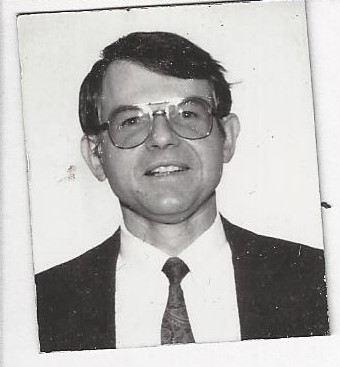
“That was the guiding thought – nobody else should have to go through this. And I see it as a legacy to John for the KCA to continue their work.”
-Barbara Gerzonich
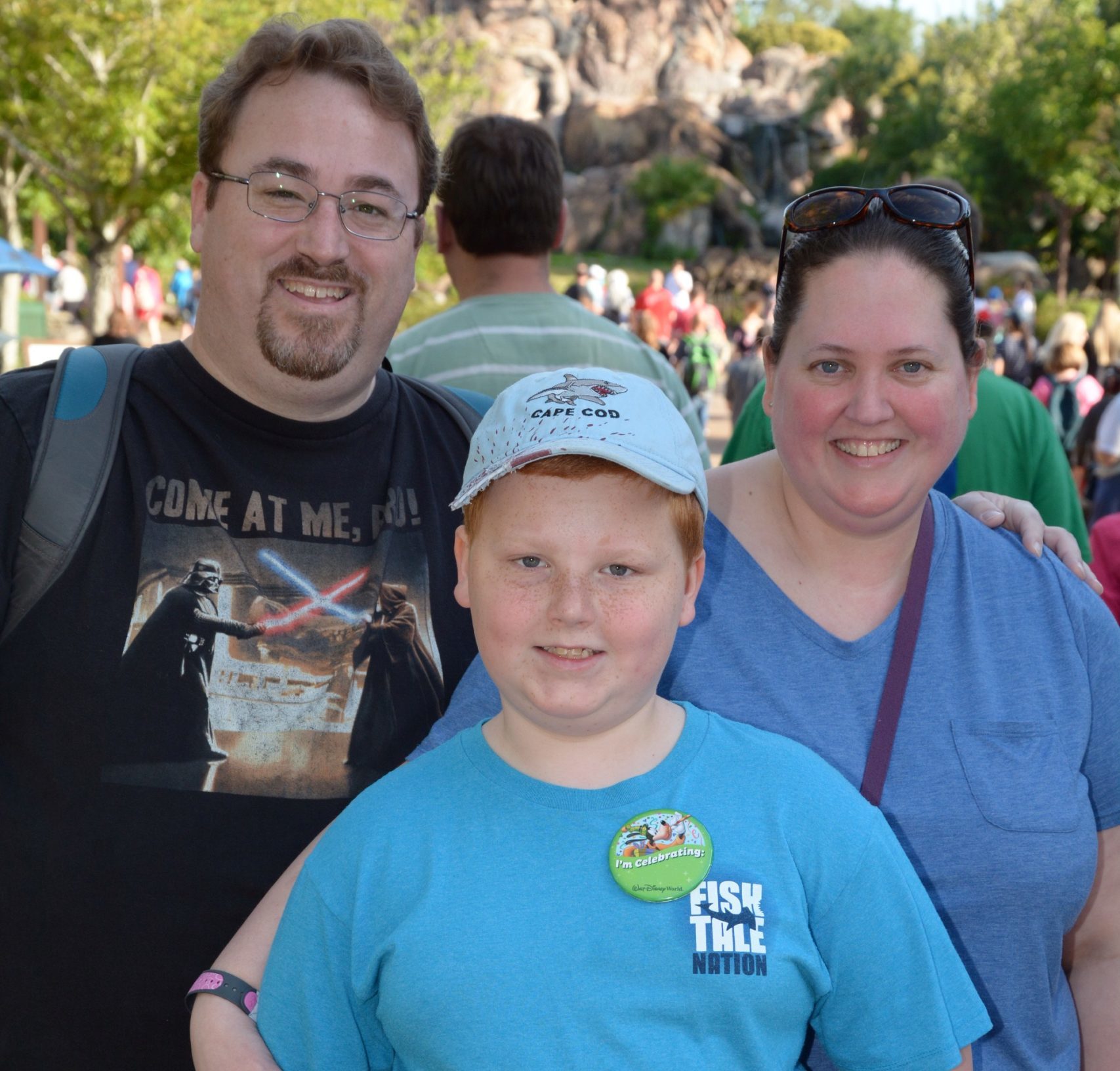
Michele Voss
Early in July, stacks of orange-colored books began popping up on Instagram. Michele Voss, a book lover whose Instagram account is devoted to what she’s been reading, wanted to do something special to honor her husband, Ted Voss, who had kidney cancer and died in 2018.
Read more of her story
“I had been thinking about it for a while. People post [pictures of] book stacks to support each other, and I wanted to spread awareness to help people recognize symptoms,” she said.
So, on June 30th – Ted’s birthday– Michele invited her friends to share images showing a stack of books with orange spines (since orange represents kidney cancer awareness) and to use the tag #orangestacksforkidneycancer. Michele planned to donate a dollar to the local hospital for every book stack shared in the month after Ted’s birthday to support research and patient support programs. It was a way to raise awareness and honor and remember her husband.
Michele noticed something was wrong with Ted while on vacation in August 2016. He wasn’t hungry and had a cough on and off since that spring. Michele suggested he visit a doctor, assuming he had developed allergies. For his cough, Ted got an X-ray, which captured part of his kidney.
The X-ray revealed that Ted had renal cell carcinoma. The disease was in both kidneys and had metastasized to his lungs. With limited treatment options, Ted enrolled in a clinical trial at Smilow Cancer Hospital, a part of the Yale New Haven Health network.
Throughout Ted’s journey, the family found comfort in their doctors, who would listen to their concerns, share information, and talk through results with the Voss family. Both Ted and Michele are scientists and were able to follow the science throughout the process. Passionate about his job and family, Ted worked full time until three weeks before he died.
Two weeks into July, Michele’s #orangestacksforkidneycancer fundraiser took off. By the end of the month, over 900 posts – stacks and stacks of orange-colored books – were shared by friends, family, and many others, including people from Croatia, Serbia, Australia, Germany, the United Kingdom, and Pakistan. Some even donated directly to Michele’s fundraiser.
“The support was overwhelming. I was hoping for maybe 100 stacks, and the intent was just a personal donation from me,” Michele said.
With a match from her employer, Michele raised $6,000 and plans to donate to both Smilow Hospital and the Kidney Cancer Association.
Michele and her son continue to keep Ted’s memory alive together. The Voss family enjoyed traveling in the past, and so Michele and her son have spread Ted’s ashes in different spots. The pair also take a shell or rock from every spot they’ve visited as a way to keep a piece of Ted with them.
Ryan Natzke
Ryan Natzke, who was diagnosed with stage 1 kidney cancer a little over five years ago, raised nearly $5,000—the most of any individual participant—for the 74K Challenge.
Read more of his story
In June 2020, the Kidney Cancer Association launched the 74K Challenge – a community fundraising effort for kidney cancer research.
Nearly 74,000 people are estimated to be diagnosed with kidney cancer this year, and so the KCA challenged the community to walk, bike, swim, and more to raise awareness and funds for kidney cancer research.
Ryan Natzke, who was diagnosed with stage 1 kidney cancer a little over five years ago, raised nearly $5,000, the most of any individual participant. An ultimate frisbee enthusiast, Ryan challenged himself to throw 74 hammers – that’s a type of frisbee throw – back and forth with his son Evan.
After treatment, Ryan, who is a member of the KCA’s Patient and Caregiver Advisory Council, has had no evidence of disease.
“Having cancer was the scariest moment of my life, especially thinking about my family and son, Evan,” he wrote on his fundraising page. “Kidney cancer is a dangerous cancer that used to be ‘rare’… Treatments continue to advance but we need to move quicker.”
74K Challenge participants could also form a team and fundraise together. Betsey Utter led her team, Rockin’ The Creek For Jane K, on a (properly distanced) 7.4 mile walk through their Houston, Texas neighborhood, raising over $6,000 in the process. The Betsey organized the walk in honor of her friend, Jane Killiam, who has had kidney cancer for 10 years. The group even stopped in Jane’s front yard along their route.
Over 70 people participated in the 74K Challenge and worked together to meet the challenge goal to raise $74,000 for kidney cancer research.
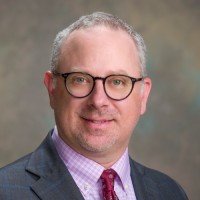
“Having cancer was the scariest moment of my life, especially thinking about my family and son, Evan. Kidney cancer is a dangerous cancer that used to be ‘rare’…Treatments continue to advance but we need to move quicker.”
-Ryan Natzke
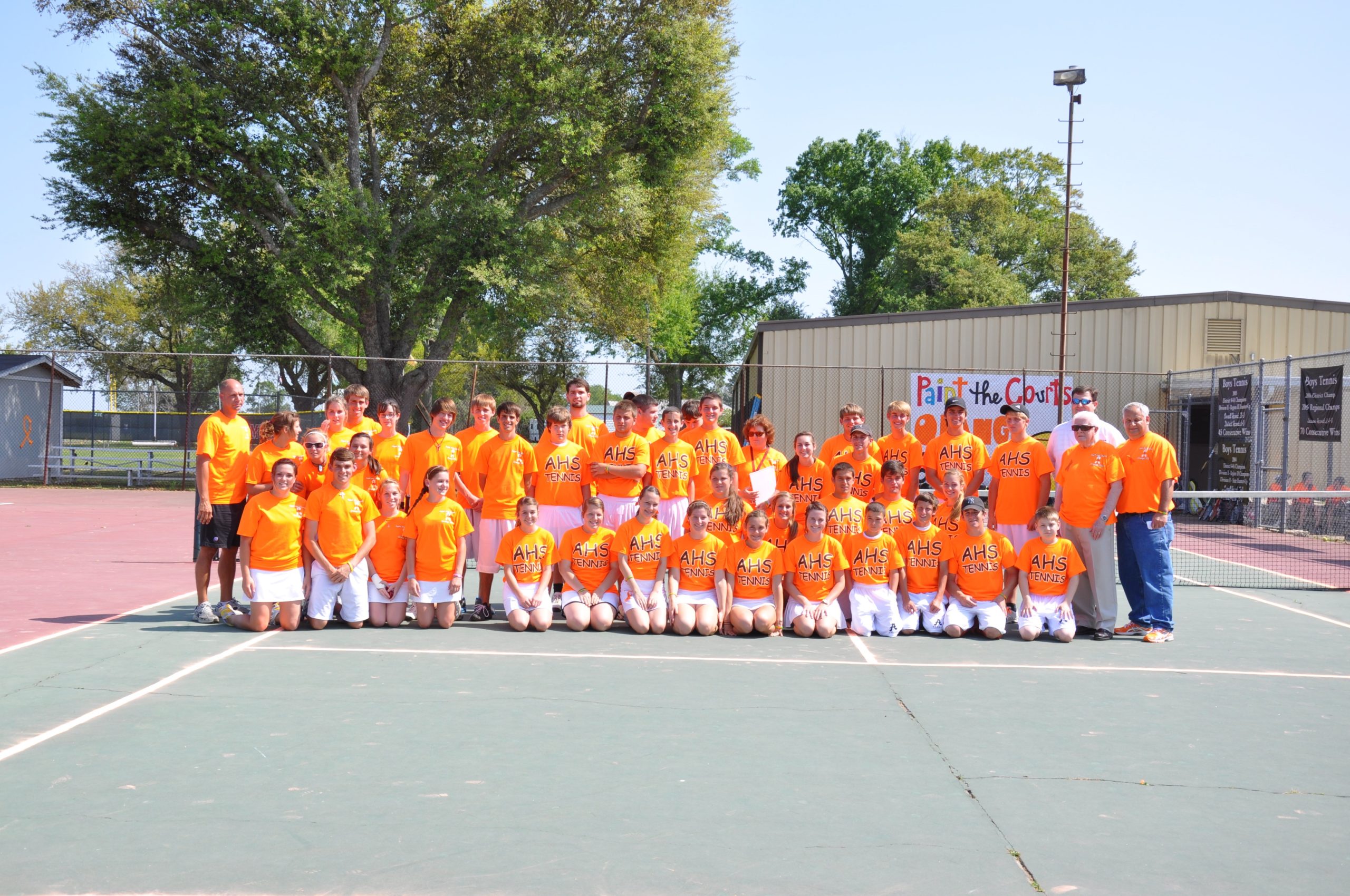
Sydney Acosta
Coach Sydney Acosta has a track record of winning. As the Athletic Director and tennis coach at Assumption Parish High School in Napoleonville, Louisiana, Sydney, 56, led the tennis teams to over 1,000 winning games over his 33-year career.
Read more of his story
When Sydney was diagnosed with kidney cancer in 2010, his community came together to help him triumph.
Since 2011, the school has been holding a yearly “Paint the Courts Orange” charity event with a tennis match, silent auction, food and drinks, and orange t-shirt sales. The 2020 event was limited to t-shirt sales due to the coronavirus pandemic but since the event began, the school has raised about $40,000 for kidney cancer research.
“It’s pretty big. On that particular date in March we have a dress down day and pretty much the entire Parish school systems wear orange shirts with blue jeans,” Sydney said.
“I’m very honored that the community would come together as a whole to recognize survivors and even people that passed away from kidney cancer. The goal is to bring recognition to the disease but for the Parish to come around and support me makes me very proud.”
Sydney underwent surgery to remove half of his kidney, but he didn’t need any further treatments. He was diagnosed with cancer again in 2017 – multiple myeloma – but is in remission and said he is feeling healthy. He is starting his 34th year in Assumption Schools athletics.
“Family, friends, and community all play a big part in your recovery,” Sydney said. “Staying positive and having faith is the biggest thing.”
Jamie Graves
Dressed in bright orange from her tutu to her racing flats – you can’t miss Jamie Graves when she’s running.
Read more of her story
And while the outfit provides opportunities for Jamie, Director of State and Local Affairs at BP and a member of the Kidney Cancer Association’s Board of Directors, to bring awareness to the KCA’s work, it’s also a reminder that she’s running 26.2 miles in celebration of the 26 years she had with her dad.
We spoke with Jamie about how she honors her dad by supporting the KCA – and her efforts to benefit other families facing kidney cancer.
Tell us how you chose your fundraising activity.
“Run like the wind, Jamie!” My dad’s voice would bellow across the park during high school cross-country races. This phrase was given meaning to him by a developmentally delayed boy he coached on the soccer field who, despite physical and mental challenges, would joyously yell, “I’m going to run like the wind for you, Mr. Graves!” To dad, this was a statement of having courage and showing heart – even in the face of overwhelming adversity.
Dad put up a hell of a fight against kidney cancer and he faced chemo, radiation, surgeries, and finally hospice with heart and a wicked sense of humor. It’s with his tenacity and strength in mind that I tackle each mile of the marathon to benefit other families facing this disease.
What would you share with others who are thinking of getting involved in community-based fundraising?
Dad always said, “it’s nice to be nice.” And raising funds for the KCA is my way of giving back to an organization that provided tremendous support and resources to my family during his 7-year battle.
I’d encourage anyone interested in fundraising to find an activity or event that is personal and will bring you joy. Do what you love in celebration of the person you love!
The KCA team makes creating an online fundraising campaign simple and easy – they provide me with the resources and tools I need to be successful. Each year I send an email to family and friends telling them about the race, and I also post information on my social media accounts. I wear bright orange when I run to bring visibility to the cause, and I love talking about why I run (and my passion for the KCA) with my running team.
I think it’s also important to note, both as a fundraiser and a Board member for the KCA, I’m proud that our organization has consistently achieved a four-star rating from Charity Navigator. We know that every dollar raised has been in support of improving and saving lives – and we don’t take that trust for granted. I’m particularly excited about the $1.3M the KCA is awarding again this year to kidney cancer researchers through our Young Investigator and Advanced Discovery Awards.
How are you modifying your activities this year to accommodate social distancing as a result of the coronavirus pandemic?
While my approach to fundraising won’t change as I’ll still connect with donors via email and social media – many races have moved to a virtual format. Instead of competing with 45,000 fellow runners and being cheered on by 1.5 million spectators, this year my husband and I may be completing 26.2 miles together in our neighborhood.
In addition to the race formats changing, my husband and I are also training differently. As our safety and the safety of our family, friends, and community is paramount, we wear face coverings (I’ve found Buff Coolnet UV+ headwear to be the easiest for running), stay more than 6 feet away from any other individuals, and try to run in less populated areas early in the day when paths are not crowded. We also carry our own water and nutrition with us.
While I miss running with my friends, we still connect via Zoom each week to keep each other updated on our running progress. I encourage anyone considering an endurance competition as a fundraiser to find a group that shares your passion – they will be your strongest advocates, your accountability buddies, and your biggest champions as you work toward your goal.
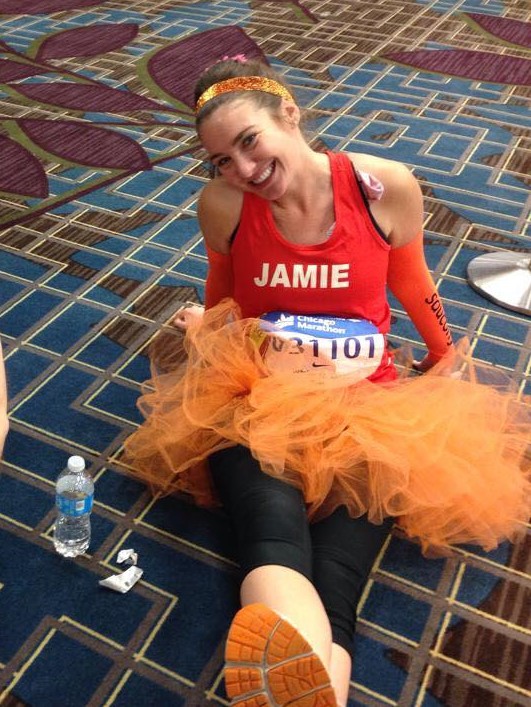
“Dad put up a hell of a fight against kidney cancer and he faced chemo, radiation, surgeries, and finally hospice with heart and a wicked sense of humor. It’s with his tenacity and strength in mind that I tackle each mile of the marathon to benefit other families facing this disease.”
-Jamie Graves
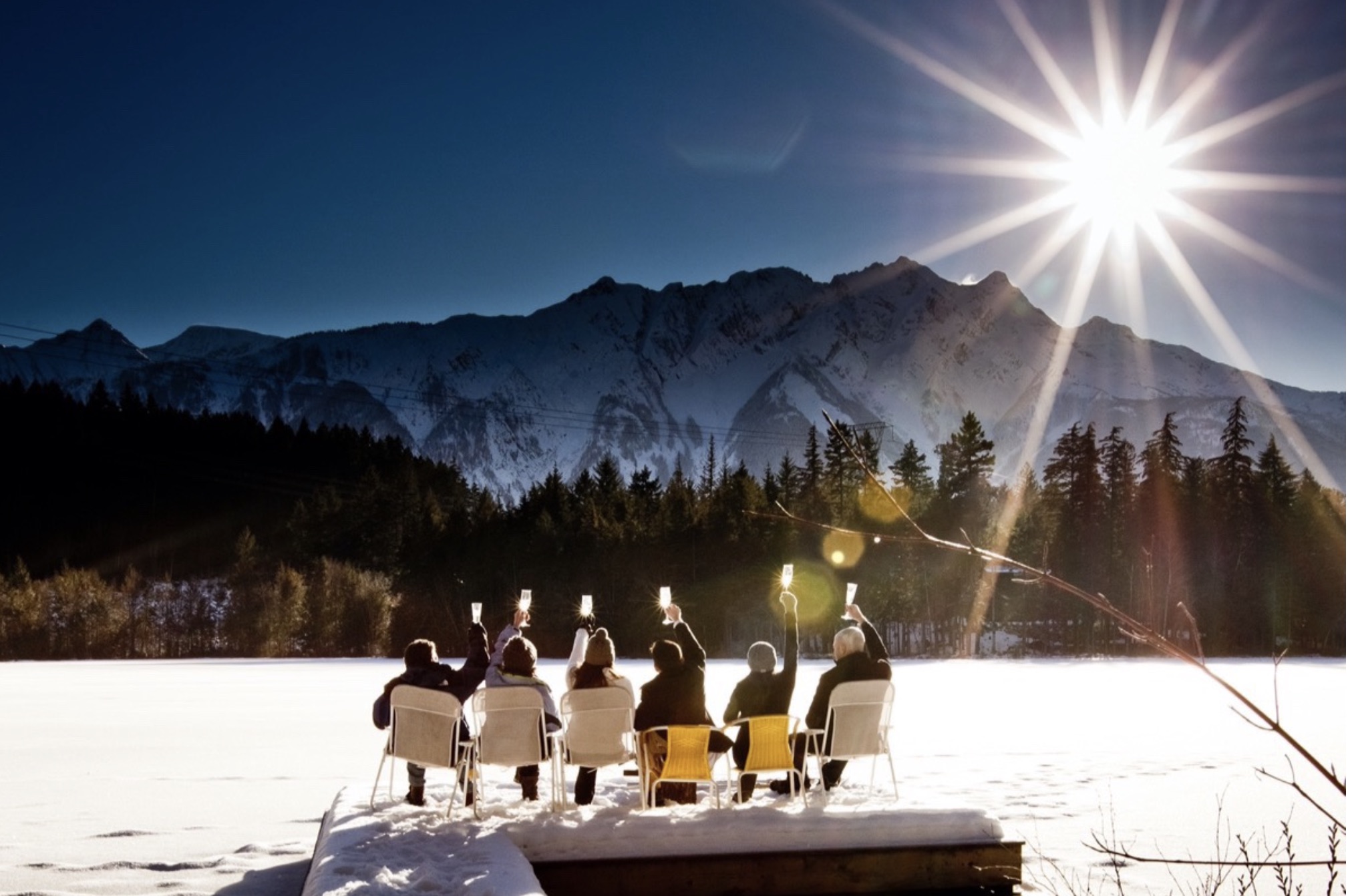
The Buntman family
Shelley Buntman loved being outdoors in nature, so this year the Buntman family planned to gather in Mount Tamalpais State Park in California for an honorary hike to celebrate her and raise money for kidney cancer research.
Read more of their story
Shelley died in 2012 after being diagnosed with stage IV kidney cancer 14 months earlier. Her son Noah is an Operations Program Manager at Apple in San Francisco and a member of the Kidney Cancer Association’s Board of Directors. Noah, his two older sisters, and his father, have been strong fundraisers over the years, supporting kidney cancer research through various activities.
We spoke with Noah about coming together as a family to plan fundraising events.
Describe your connection to kidney cancer and the KCA.
My family and I are really close and all super athletic. Losing my mom was a tremendous shock and loss for our family. We raised money for cancer with [other organizations] for a couple of years. I reconnected with the KCA when I was in business school in Chicago and came on as a full time Board [of Directors] member in 2015.
Tell us more about how and why you chose to hike Mount Tamalpais as a family this year.
My mom was active and loved hiking. With my wife and daughter and I living in San Francisco, we thought it would be a beautiful place to do the event.
Seeing how the KCA has grown, I’ve felt close to the kidney cancer community in the past year. I wanted to give, with my family, some time and attention to put on an event and raise money for the KCA’s work.
Are you modifying your activities this year to accommodate social distancing as a result of the coronavirus pandemic?
We are reevaluating what [our trip] looks like in a COVID-19 world. We are probably going to postpone the actual event and we’re talking through the best ways to communicate with those who have given and those who have not given yet.
In general, I think there’s going to be things you lose in a shift to virtual fundraising but also lots of things you gain. The advantages are that people are online more and they’re connected through social media in a positive way.
What do you hope people who want to fundraise can accomplish through their communities?
Starting small is absolutely fantastic. It’s amazing to watch your network of support and donors grow and develop if you keep at it. When we started out, we set out to raise $2,000. We surpassed that in the first year. The next year we upped the goal, then we upped it again and again. Now [our goal] is $20,000.
The most important thing is just to make sure people understand their donation is going to make a difference in tackling the disease. Especially in challenging economic times – or even in a boom – people want to know where their money is going and why. And that the organization [getting the donations] is doing everything they can to solve the problem they’re trying to solve.
What are some things you did that made your fundraising events successful?
Personal connections and outreach to our individual circles or networks helps. My two sisters and I and my dad have been raising money over 5-6 years now in memory of my mom. We kept every donor’s name and we make personal appeals. We’re diligent in following up with people who give and send personal thank you notes in which we articulate where the money is going, what it’s used for, and how it’s going to fix a problem.
Putting on a huge fundraiser seems daunting. You just begin chipping away at it piece by piece. If you need to write an email, start with a draft. If you have to gather contacts, spend an hour focused on that. It breaks a big project up into smaller tasks.
Have there been other positive outcomes following your fundraising events?
Putting on these events always brings our family closer together. We often accompany our fundraising with some event like meeting up at a bar. Bringing our friends and family together reminds us of how much people care about our family and mom’s memory. That’s very special for us.
Other people also appreciate having this event to remind them of my mom’s memory. Day-to-day, we don’t often have things to memorialize people we’ve lost. Most commonly, my mom’s friends thank us for making a time and space in which we can remember her in a fun way.
“Seeing how the KCA has grown, I’ve felt close to the kidney cancer community…I wanted to give, with my family, some time and attention to put on an event and raise money for the KCA’s work.
-Noah Buntman
Frank Matrise Jr.
When students in Kenosha, Wisconsin wanted to celebrate a beloved local football coach, they did it in a blaze of color, turning the stands orange during a Friday night game.
Read more of his story
Frank Matrise Jr. died of kidney cancer on July 11, 2019 at age 53. He coached football at St. Joseph Catholic Academy and later at Tremper High School for a combined 34 years.
“I’m just really proud of our student body. It wasn’t just the adults or the families taking the reins; it was really the student body that took the reins and ran with it. They wanted to get a lot of orange things out and get the recognition out there for leukemia and kidney cancer,” said St. Joseph Athletic Director Dave Witthun told the Kenosha News.
“The (students) really wanted to do it themselves. They all came out in droves. Everybody was in orange; they were tweeting about it and talking about it in their classrooms. … Each program just took the bull by the horns and did something.”
The “Go Orange” football game was just one of many ways the community remembered Matrise, a passionate and involved coach, educator, and father to twins Katie and Kyle, including naming a street near Tremper as “Frank Matrise Way” and a donation to the Kidney Cancer Association by St. Joseph.
“I am just so humbled with all the love and support the Kenosha community has given us,” said Matrise’s wife Wendy Matrise in the Kenosha News. “He loved people, he loved family.”
Make a Difference Today
Together we can do so much.
Join a community of people who share your passion for helping people affected by kidney cancer by supporting the KCA today.
